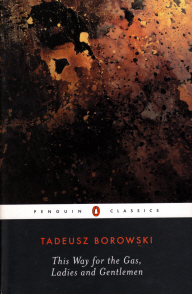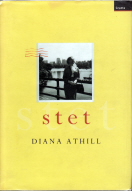Today is Bastille Day, La Fête Nationale. The French celebrate in style, notably with a military parade down the Champs Elysées. When I was a child I would see film of this on television and think they were celebrating my birthday. I have had an irrational but enduring affection for France ever since.
Just back in fact from Paris, where there was a festival showing of the film of The Prestige, in a small town called Bois d’Arcy on the western edge of the city. The festival was organized by an old friend of mine, Claire Duval. The facilities were tremendous: a modern conversion of large farm buildings into a cultural centre, including a substantial but intimate cinema. All the arrangements were perfect, organized by Claire with unobtrusive style. I made a speech in school-learned French to introduce the film, and was still cringing half an hour later. The film looked good on the big screen (I had not seen it in a cinema since 2008, when I was at a screening in Russia, with Russian dubbing). It seems to gain conviction with the years, looking better and better. The print Claire had ordered was subtitled, not dubbed in French, which helped compensate for the poor sound level of much of the English dialogue, especially at the end.
I seem to have passed away during the night, or at least passed on — the Guardian has left me out of its birthday listings today. A reversion to form, as the paper consistently ignored me for at least sixty years, but then by some unstated miracle began putting me in. I knew it was too good to last, and I am returned to unnamed oblivion. Funny how these small slights gain one’s undivided interest, if only for a minute or two. However, I was glad to see that most of my co-birthers remain: the television presenter Sue Lawley, a mediocre politician who used to run London called Illtyd Harrington, and the historical novelist Susan Howatch, all remain on the Guardian‘s ‘A’ list.
 A wonderful example of pure slipstream: innovative, multi-levelled, endlessly amusing, completely original. Kehlmann is a young German writer, currently living in Vienna. This is his third novel. Like all the best slip, Fame more or less defies description, even undermining any attempt to recount the plot. It’s one of those books that as soon as you’ve finished it, your interest has been so piqued by the author’s intrigue that you want to go back and start all over again. And no, it’s completely non-fantastic — everything happens in the here and now, no troublesome fantasy to have to put up with. This is middle Europe in the present day, a world of mobile phones, grumpy authors, assisted suicide, self-fulfilment books and characterless hotels. It is the most enjoyable novel I have read this year. So far.
A wonderful example of pure slipstream: innovative, multi-levelled, endlessly amusing, completely original. Kehlmann is a young German writer, currently living in Vienna. This is his third novel. Like all the best slip, Fame more or less defies description, even undermining any attempt to recount the plot. It’s one of those books that as soon as you’ve finished it, your interest has been so piqued by the author’s intrigue that you want to go back and start all over again. And no, it’s completely non-fantastic — everything happens in the here and now, no troublesome fantasy to have to put up with. This is middle Europe in the present day, a world of mobile phones, grumpy authors, assisted suicide, self-fulfilment books and characterless hotels. It is the most enjoyable novel I have read this year. So far.
